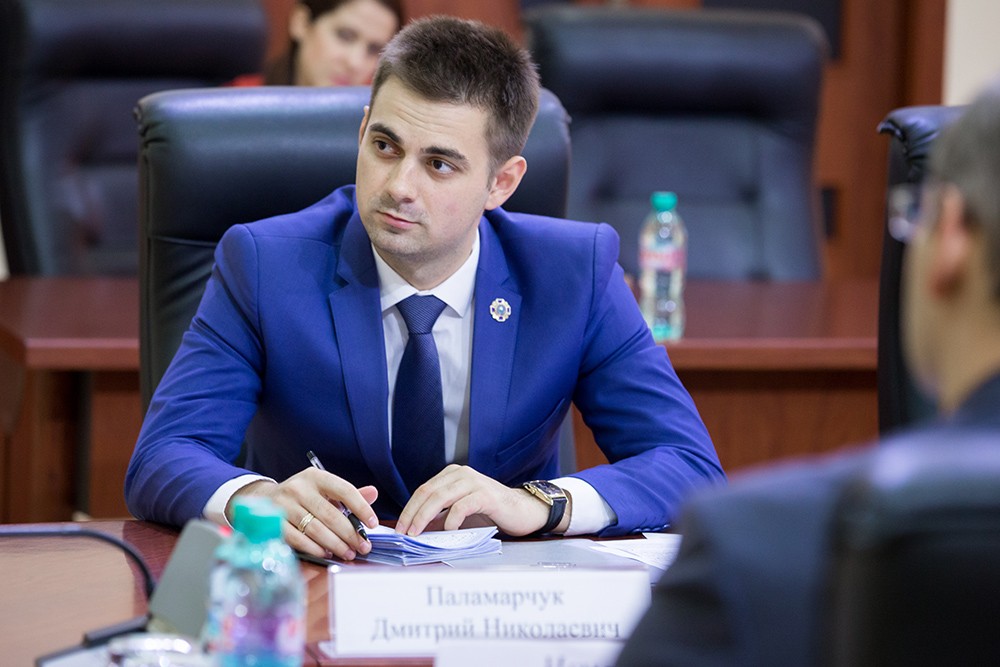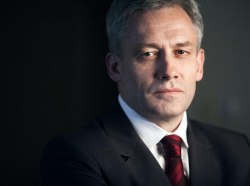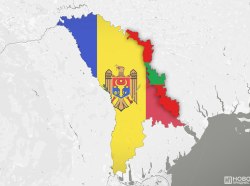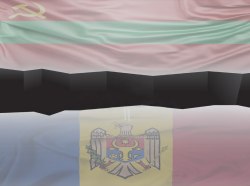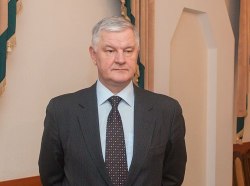«Moldova has refused to hold the announced and, as it seemed, agreed meeting of political representatives in Tiraspol. What may be the reason for this decision?»
«It is not comprehensible for the Pridnestrovian side. It is not the first time in many years of the negotiation process when Pridnestrovie confronts Moldova's incapability to fulfil agreements they have signed and commitments they have made, as well as attempts to avoid discussing acute and pressing issues.
«However, refusing the meeting previously agreed on in the presence of more than 10 foreign diplomats and members of the negotiation teams from Pridnestrovie and Moldova has never occurred before. I doubt if such actions can be justified this way or another — they are illogical and irrational. The Moldovan side 'has shot its own leg', as they say. Behind the closed doors diplomat colleagues are using even stronger words, referring to this demarche.”
«What may this Moldovan stance testify to?»
«First of all, it testifies to absolutely dismissive attitude on the part of our Moldovan counterparts towards the unique instruments and opportunities the sides have thanks to the existing negotiation mechanisms.
«Of course, this attitude seems short-sighted. In fact, the Moldovan side is acting, consciously or not, towards the unbalancing of the current negotiation structure. The special representative of the OSCE chairperson-in-office, Ambassador Cord Meier-Klodt has proposed that the sides move towards 'small stories of success'. But with the methods Moldova employs, such stories are unachievable.
«Today, both sides need to work professionally and purposefully at various levels of the negotiation process, taking into account the existing public demand and the interest by international mediators and observers. Our Moldovan colleagues, instead, do nothing but make declarative statements through the media. There are constant statements by Moldovan officials about the need to use every opportunity to discuss and solve problems, arrange a substantive dialogue and intensify negotiations in all formats. Moldova's prime minister, Pavel Filip, is speaking much about it.
«In fact, apart from avoiding the previously agreed meeting of political representatives, Moldova has disdained this year alone five invitations to expert working group meetings: three to the meeting on transport and road utilities, and two to the meeting on railway transport and communications. Pridnestrovie also proposed to hold a working meeting of experts concerning the dismissal of criminal cases and a working expert meeting on education, legal support, the issuance of documents to citizens, humanitarian aid. These initiatives have remained unanswered.
«At the same time, Pridnestrovie has complex and elaborated proposals in almost all the above-mentioned spheres that have been officially sent in writing to Moldova and all other 5+2 format participants. However, these ideas remain only on paper for the time being as Moldovan representatives avoid contacts.
«Moldova's prime minister may have the reason to consider the activities of his direct subordinate — representative on political issues — that are radically and fundamentally different from official statements by the Moldovan side.”
«What does Pridnestrovie intend to do?”
«Our political representative is on official visit to Moscow where he is to meet Russia's MFA ambassador at large, Sergey N. Gubarev. At the end of the week the newly appointed Ukrainian ambassador at large, Valery T. Zhovtenko, is expected to visit Tiraspol. Pridnestrovie's negotiation team is in constant contact with mediators and observers in the negotiation process.
«The Pridnestrovian side is raising and will continue to raise the issue of tightening up discipline in the dialogue and the inadmissibility of profanation and attempts by Moldova to cover their incapability for constructive decisions with a 'fig leaf' of shallow declarations.
«It is in the interest of the people of Pridnestrovie and Moldova today to conduct careful, professional, result-oriented work. The Pridnestrovian side is ready for it and have already put on the negotiating table a list of elaborated initiatives in the spheres of motor transport, railway and some other areas. As soon as the Moldovan colleagues respond, as soon as they start thinking and acting substantively, impetus will be added to the dialogue. Pridnestrovie is expecting observers and mediators to address the same message to Moldova.”
«Is there any contingency plan in case Moldova refuses to have a substantive dialogue?”
«Pridnestrovie is a firm and convinced advocate of political and diplomatic methods of solving existing problems with the available negotiation instruments. It is necessary to achieve understanding, including at the international level, that a paradigm of unilateral uncoordinated steps adopted by Moldova is not acceptable.
«The fact is that unilateral actions pose a direct threat to the ongoing negotiation process because they in fact annul the value of dialogue and compromise ways of settlement.
«Unfortunately, Moldova or some hotheads in Moldovan governmental bodies and organisations are acting in very brutal and unilateral way, and Moldova's political representative have nothing to say to justify discriminatory decisions they approve. His role is, in fact, nominal, which is why he is trying to step aside, to turn invisible, avoiding productive work because he understands that open discussion will reveal Moldova's deficit for ideas and arguments.
«I'd prefer that uncoordinated measures of making decisions outside the negotiating process will not dominate our relations with Moldova.”
«How do Moldovan unilateral actions affect the negotiation process?”
«Careless steps by our Moldovan counterparts do not only influence the dynamics and confidence within the negotiations but also directly affect the prosperity of citizens and business entities.
«Examples abound. Railway restrictions result in daily losses for Pridnestrovian enterprises. Various restrictions on citizens' freedom of movement are also very sensitive.
«Especially destructive may be a decision by Moldova and Ukraine to establish joint customs and border control at the Kuchurgany checkpoint. A multiple-factor analysis of possible implications shows that the implementation of this decision may trigger the existing economic, security and freedom of movement risks.
«Pridnestrovie's MFA is forecasting problems with the delivery of cargoes to Pridnestrovie that are subject to phytosanitary and veterinary control imported by individuals and organisations not registered in Moldova, as well as with the import of motor vehicles. There is concern that administrative barriers Pridnestrovian citizens face in Kishinev airport will be extrapolated to the procedure of crossing the Ukrainian-Pridnestrovian border. And this list of fears is by no means full.
«That is why Pridnestrovie is doing its best to give maximum publicity to any Moldo-Ukrainian «secret' deals, explain possible consequences to international partners and prevent the implementation of the above-mentioned destructive decisions. The Pridnestrovian side is calling Moldovan colleagues for rationality, openness and negotiations in its classic immanent meaning.”

